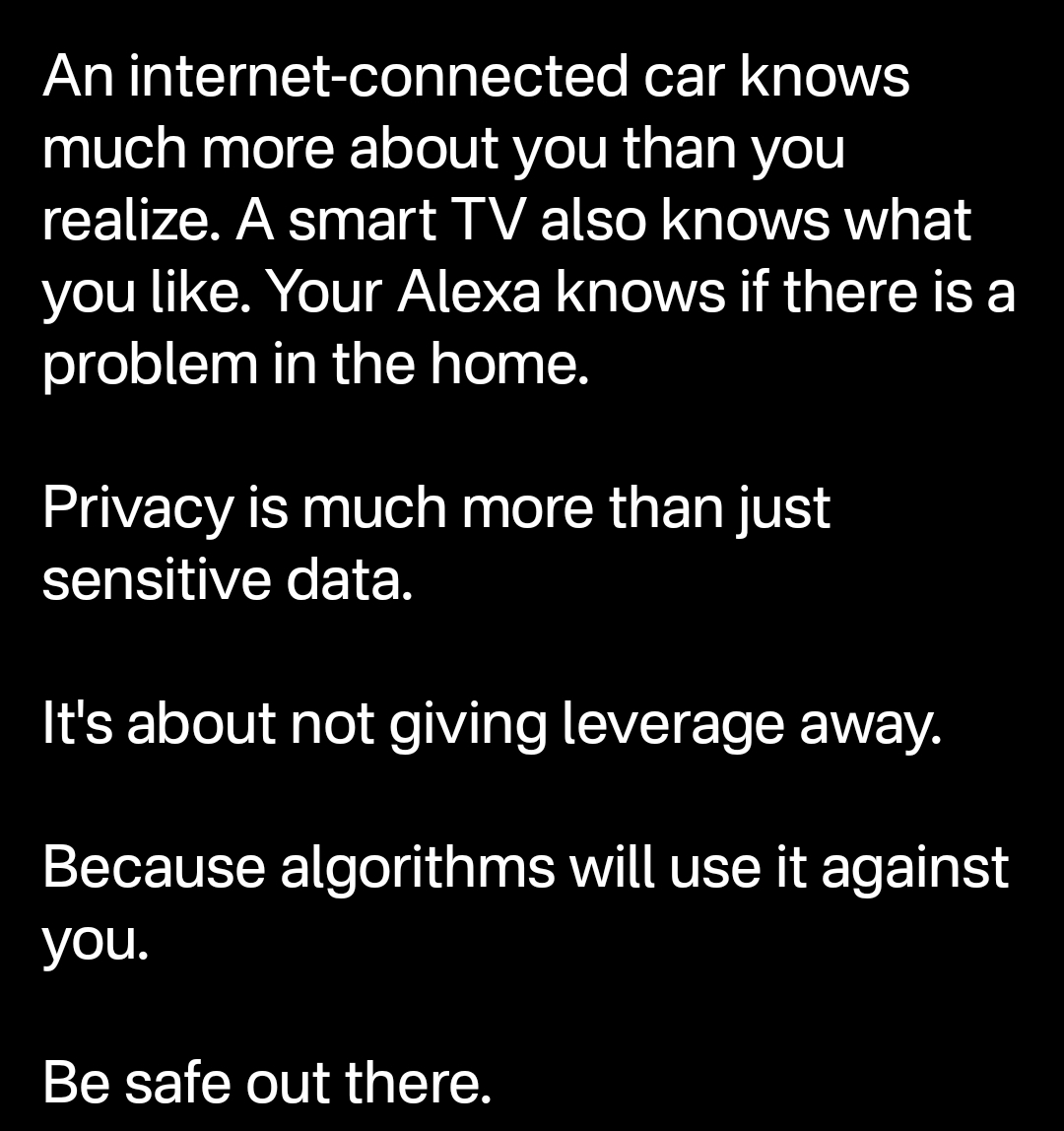
post text
Picture this:
- You type on Google “laptop won’t turn on”
- Google now knows you have a broken laptop and can estimate how desperate you are to fix it.
- Because it knows how desperate you are, it can increase shop prices proportionally.
You are going to pay the maximum they get you to pay.
That’s algorithmic pricing.
The more companies know about you, the more they can predict and sell how desperate you are to other stores out there.
An internet-connected car knows much more about you than you realize. A smart TV also knows what you like. Your Alexa knows if there is a problem in the home.
Privacy is much more than just sensitive data.
It’s about not giving leverage away.
Because algorithms will use it against you.
Be safe out there.

If smart TVs knew what we liked, I don’t think 90% of what’s in the “most popular” sections of every streaming service in existence would be filled with random shit nobody has ever heard of. Unless they know what we like, and then just refuse to give us what we actually like… 🤔
You’re already paying for the streaming service. They don’t benefit off of giving you what you want in that scenario
They don’t need to recommend you the shows you already know about. They want to recommend you things you haven’t heard about in the hopes that you will find something new that you like so that show will keep you paying once the ones you already are watching are done.
This. This benefits them.
And if it fails, well again: you’re already paying them.